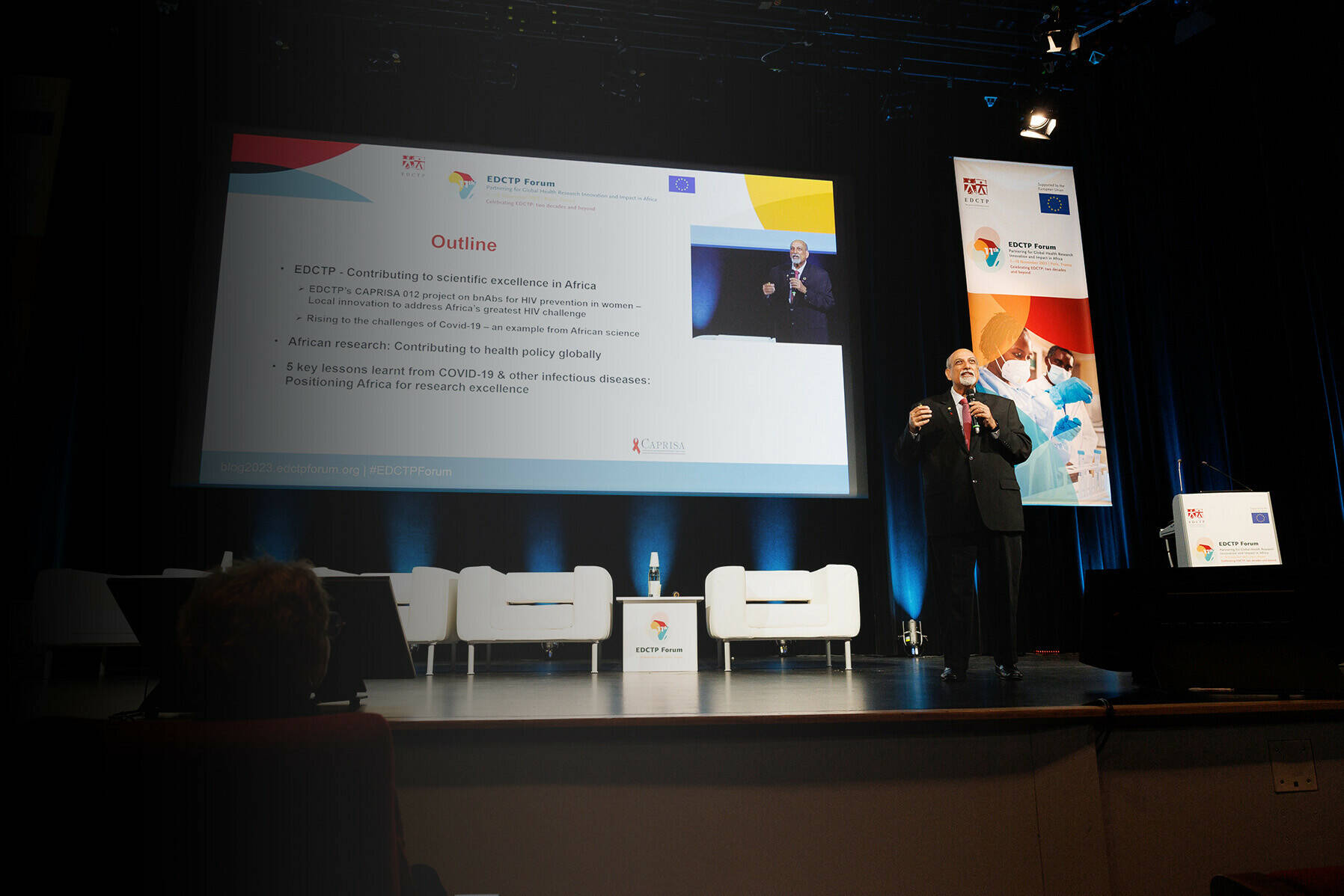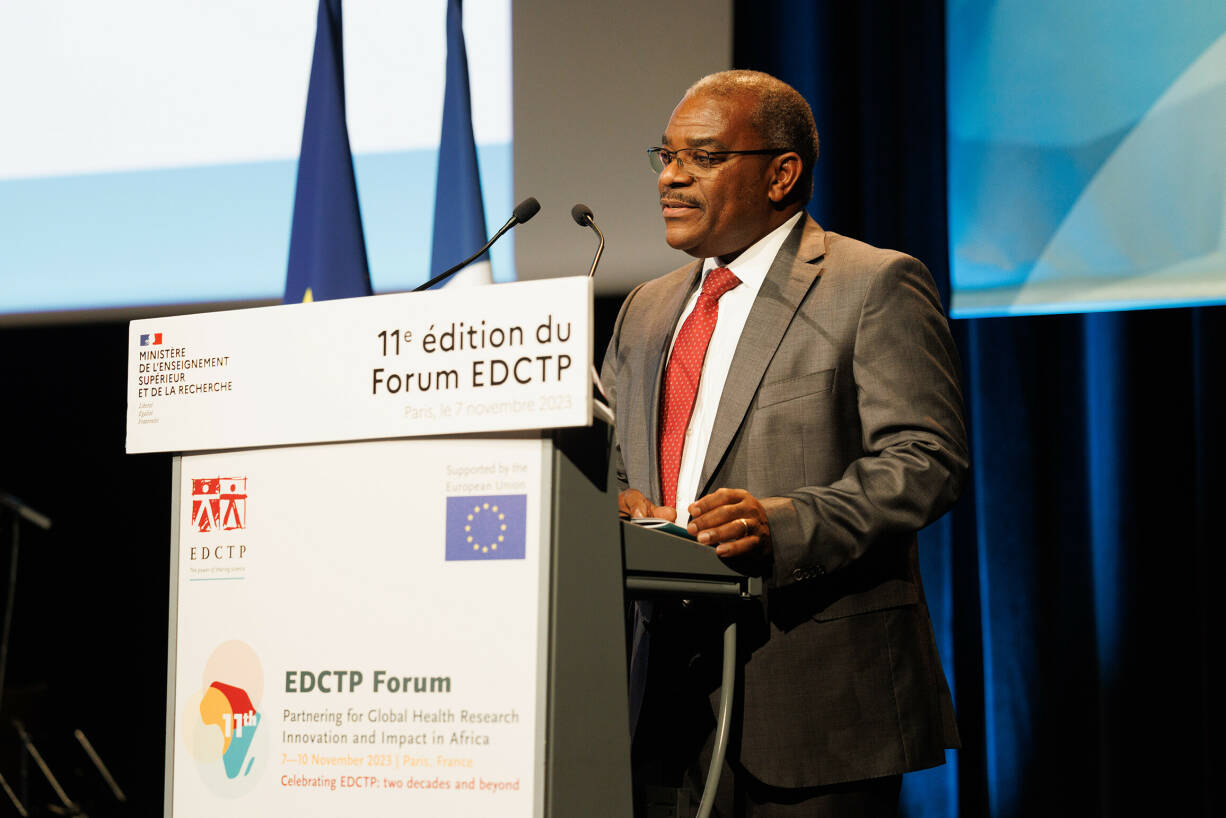
In his keynote address, Professor Salim Abdool Karim, Director of the Centre for the AIDS Program of Research in South Africa (CAPRISA, South Africa), described how a discovery made in Africa, an antibody with the power to neutralise a wide range of HIV strains, has led to a possible intervention for use in Africa – and discussed what it will it take for this to be the norm rather than the exception.
An outstanding malaria researcher in his own right, Professor Abdoulaye Djimdé, Director of the University of Science, Techniques and Technologies of Bamako, Mali, has also been instrumental in strengthening research capacity in Mali and surrounding countries. During his keynote address, he outlined his philosophy on the best ways to strengthen institutional research capacity in sub-Saharan Africa.
A keynote address from Professor Claudia Hanson, Senior Lecturer, Docent at Karolinska Institutet in Sweden, and a subsequent panel discussion explored the factors affecting maternal and neonatal survival – and the need to make pregnant women and newborns a high priority. The session commemorated the life of Ana Lúcia Cardoso Weinberg, a much-loved member of EDCTP staff who sadly passed away in 2022 due to a rare cardiovascular condition, spontaneous coronary artery dissection (SCAD)
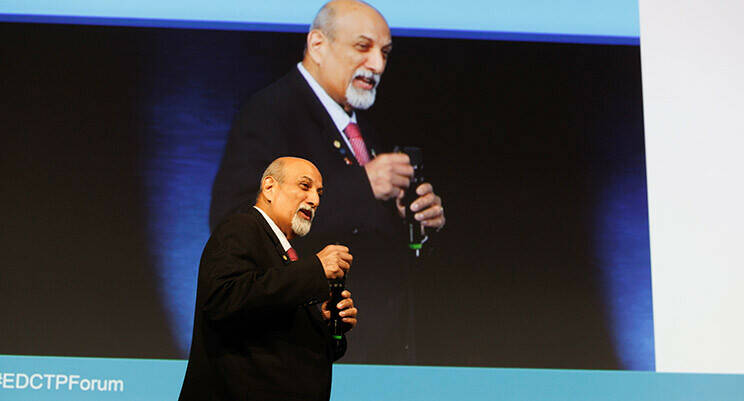
African-led discovery and innovation
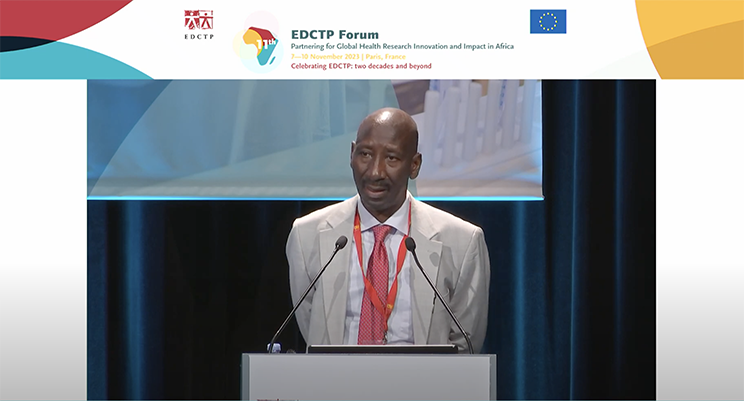
Africa needs stronger institutions: what is making it happen?
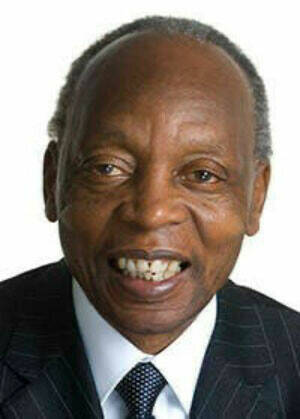
Dr Pascoal Mocumbi keynote address
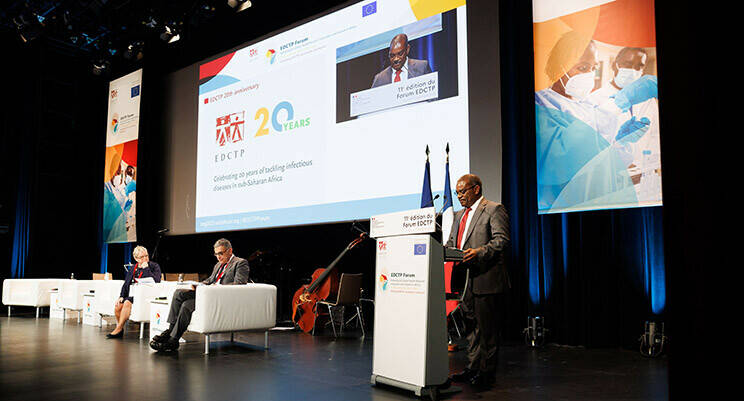
EDCTP Anniversary Presentation: EDCTP 20 years and beyond – from strategy and numbers to sustainable impact
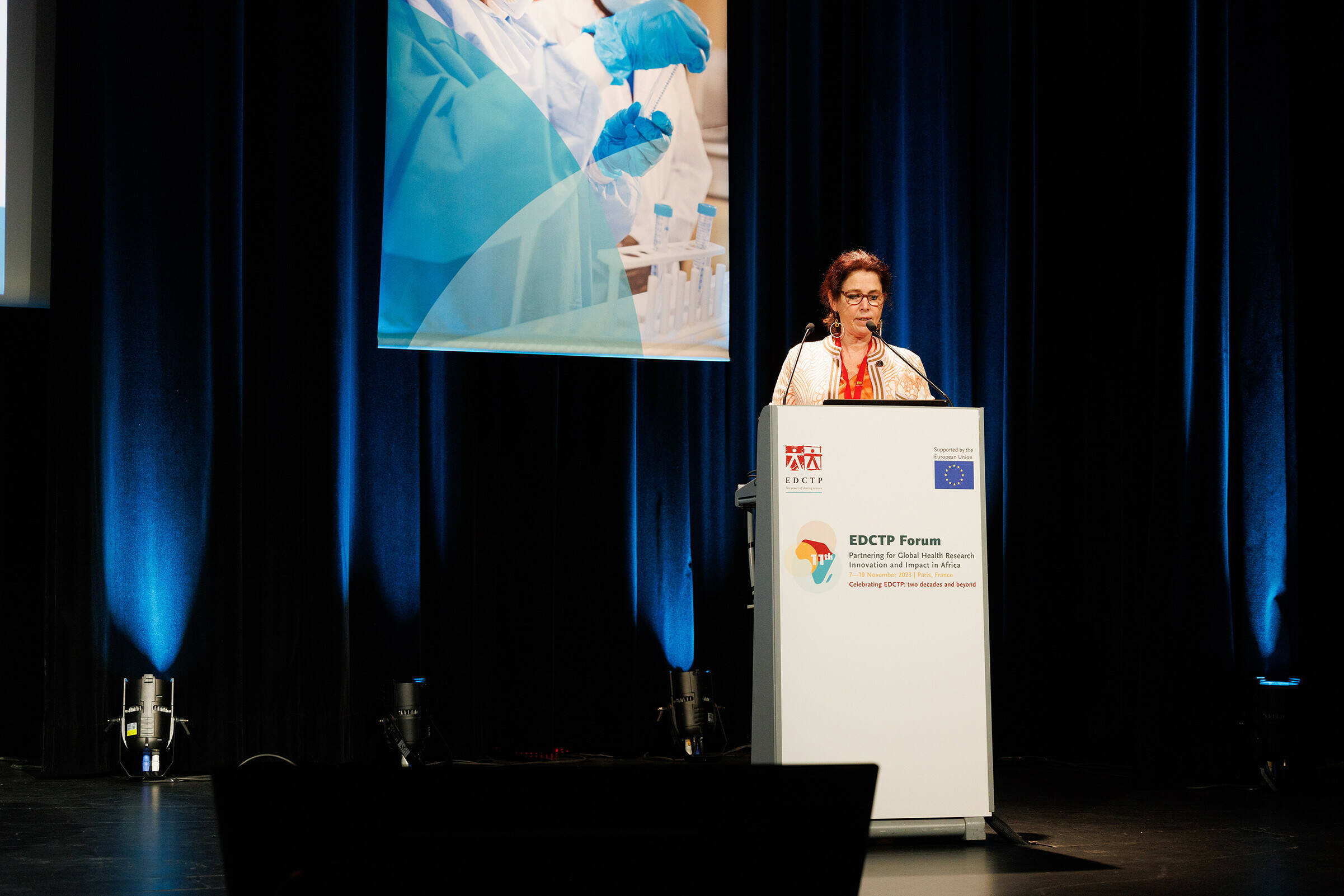
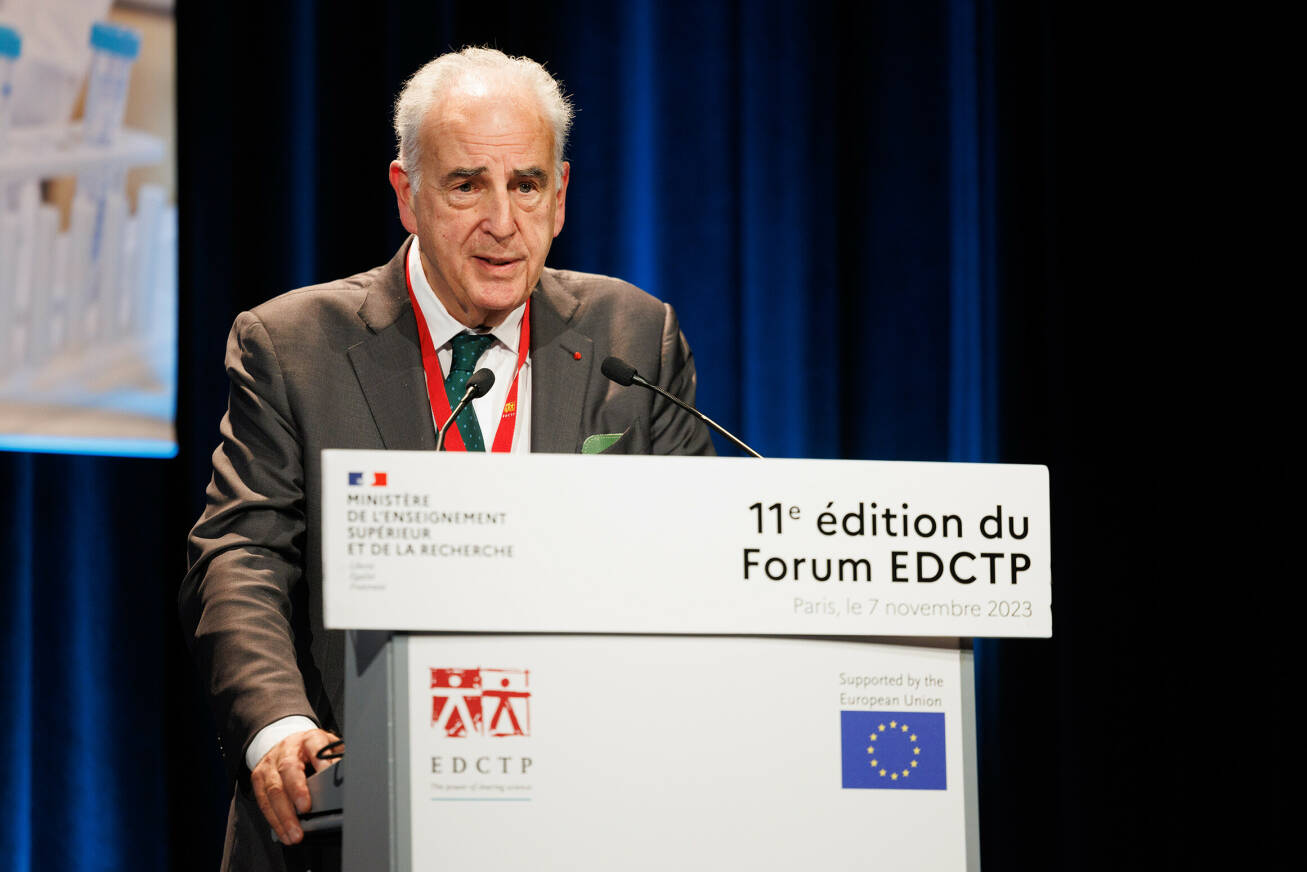
In his keynote address during the opening plenary of the Forum, Dr Michael Makanga, EDCTP2 Executive Director, gave a whistle-stop tour of the first 20 years of EDCTP – summarising not just trends in funding but also, most importantly, what that funding has achieved.
Delivering the Dr Pascoal Mocumbi keynote address on the opening day of the Forum, Professor Michel Kazatchkine, Senior Fellow at the Global Health Centre, the Graduate Institute for International Affairs and Development, Switzerland, argued that EDCTP has an opportunity to play a pivotal role in ensuring more equitable access to new medical interventions. Despite much progress, he suggested that global health has been stagnating in recent years, and backsliding in the past three years. He called for a complete shift in the intervention development paradigm that gives countries in sub-Saharan Africa more capacity to develop and produce the interventions they will need during the next health emergency.
scroll down
Throughout the Forum, a series of speakers from Africa and Europe raised issues of critical importance to the future of health research in sub-Saharan Africa.
